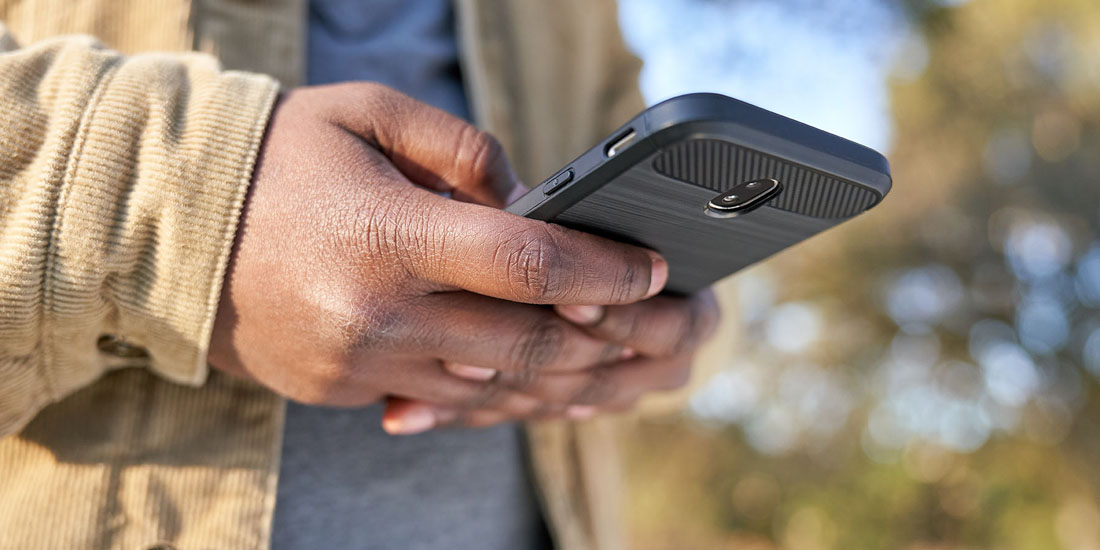
Online therapy can reduce social anxiety symptoms in young people experiencing first-episode psychosis, Orygen research has found.
The pilot study, involving 10 young people, found those who participated in eOrygen’s EMBRACE moderated online social therapy (MOST) program had a statistically significant reduction in social anxiety symptoms after two months.
Lead researcher, Orygen PhD candidate Carla McEnery said the findings were promising, particularly because the young people (aged 17–26) who entered the study had treatment-resistant social anxiety. The findings are published online ahead of print in Early Intervention in Psychiatry.
“These young people had already received two years of face-to-face services within a specialised clinic and, on top of that, another 18 months of online social therapy, yet despite all of that they remained really high on social anxiety symptom rating scales,” Ms McEnery said.
“After participating in EMBRACE they were able to test what they learned in the real world and they found they could do things they’d previously been avoiding.
“They could maintain eye contact with other people, order a coffee, meet up with people, even apply for jobs. To see those improvements was really heartening and quite promising.”
EMBRACE involved 12 online modules, or ‘journeys’, which addressed topics including physical symptoms of anxiety, avoidance behaviours, perfectionism, shame and intimate relationships.
The therapeutic content was based on cognitive behavioural treatment and delivered in novel ways: via comics, peer-to-peer online social networking, and online discussions with expert mental health clinicians and trained peer moderators with lived-experience of mental ill-health.
All 10 participants rated the EMBRACE intervention as positive, safe and said they would recommend it to others who experienced social anxiety.
“They were really positive in their feedback and said it changed the way they saw themselves,” Ms McEnery said.
“Because social anxiety typically onsets at a very young age people find it hard to discern if their anxiety symptoms are part of their personality or something they can overcome and manage.”
The EMBRACE content was developed in conjunction with young people experiencing social anxiety and first episode psychosis.
Research shows that 22–25 per cent of people experiencing psychosis will also experience social anxiety disorder. [1][2][3]
Ms McEnery said statistically significant improvements in social anxiety symptoms were measured via the self-report Social Interaction Anxiety Scale and the clinician-administered Liebowitz Social Anxiety Scale. Non-statistically significant decreases were found for depression and loneliness.
Senior research fellow at Orygen and eOrygen director Professor Mario Alvarez-Jimenez said learnings from the EMBRACE trial had already been applied elsewhere.
“In this intervention we tested a new model of blended online and clinician guided support with a strong emphasis on building a therapeutic alliance and sense of team with the young person,” he said.
“This has informed the latest version of MOST which was released in December 2019 after a 20-month redevelopment process.
“Elements of the EMBRACE intervention are also being tested in a current Orygen randomised controlled trial called Momentum, which is looking to improve social functioning in young people at ultra-high risk of psychosis, using MOST.”
Funding for the pilot study came from an Australian Government Research Training Program Scholarship and a National Health and Medical Research Council of Australia Career Development Fellowship (grant number APP1082934) to Professor Alvarez-Jimenez.
[1] Achim AM, Maziade M, Raymond E, et al. 2011. How prevalent are anxiety disorders in schizophrenia? A meta-analysis and critical review on a significant association. Schizophr Bull. 37(4):811-21.
[2] McEnery C, Lim MH, Tremain H, Knowles A and Alvarez-Jimenez. 2019. Prevalence rate of social anxiety disorder in individuals with a psychotic disorder: A systematic review and meta-analysis. Schizophr Res. 208:25-33.
[3] Michail M and Birchwood M. 2009. Social anxiety disorder in first-episode psychosis: incidence, phenomenology and relationship with paranoia. Br J Psychiatry. 195(3):234-41.